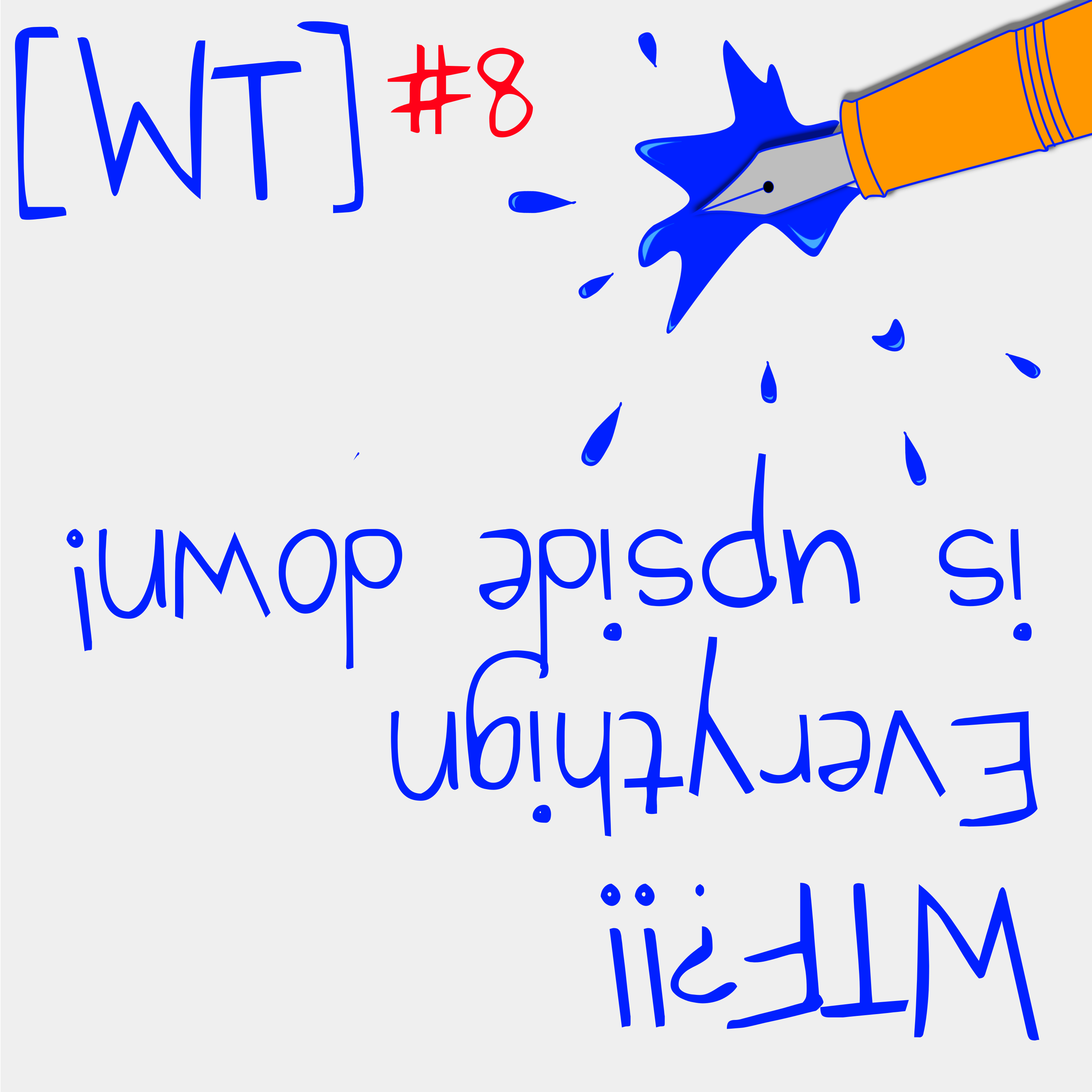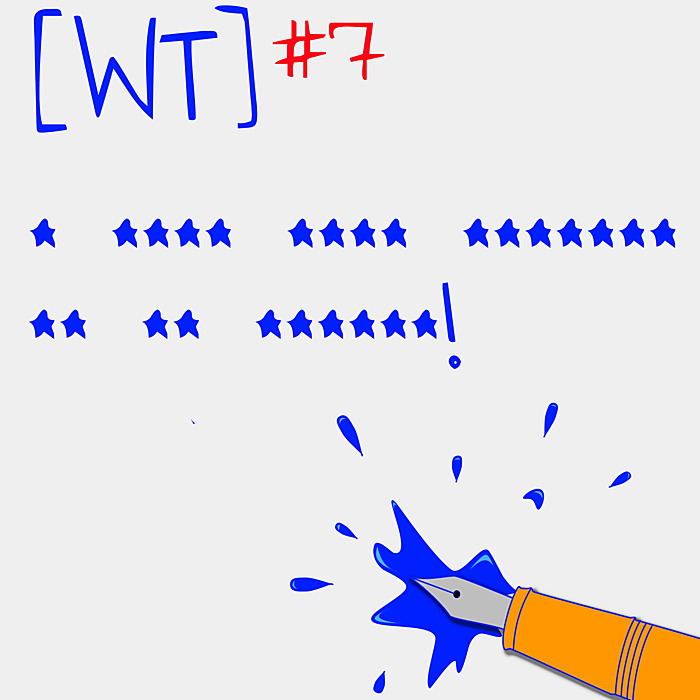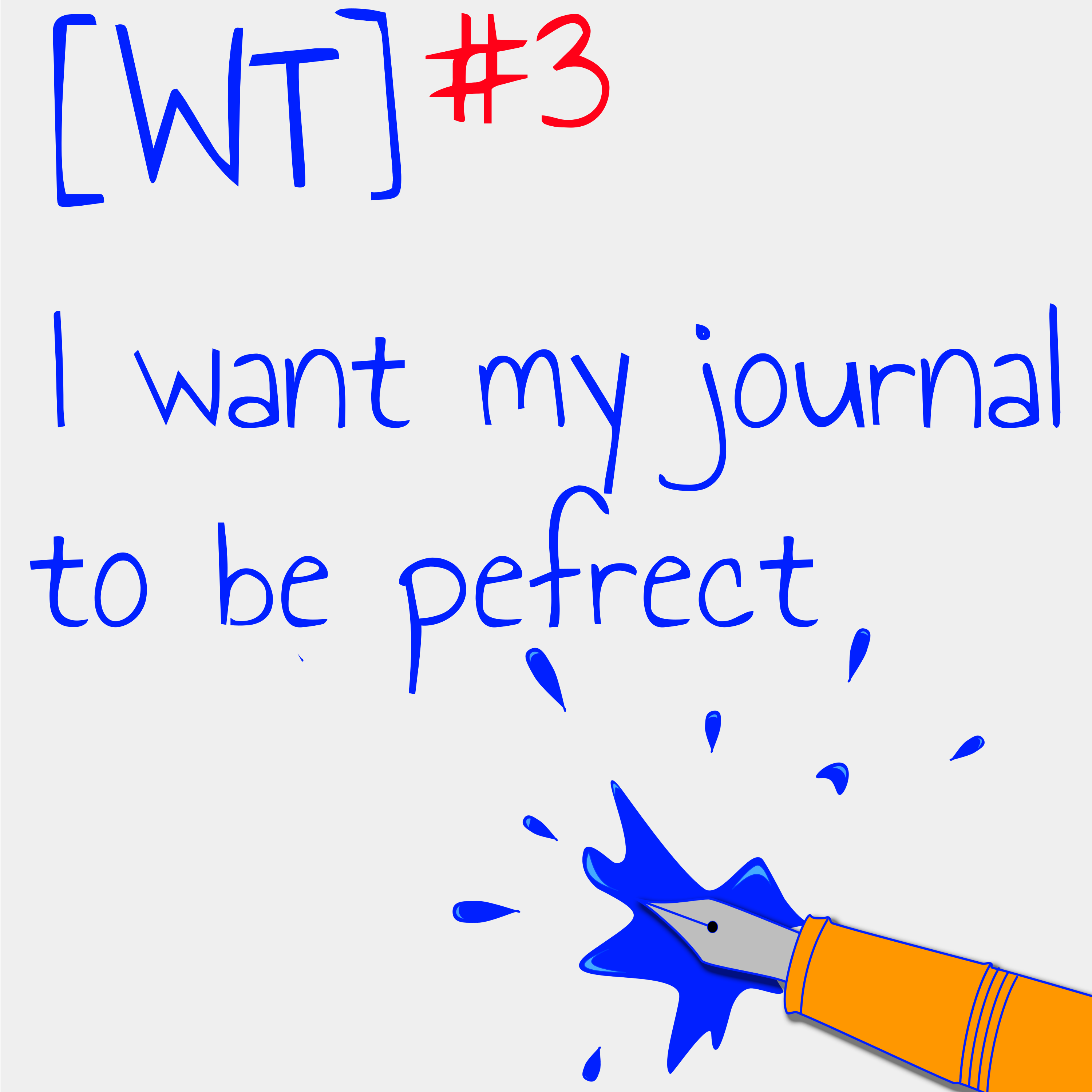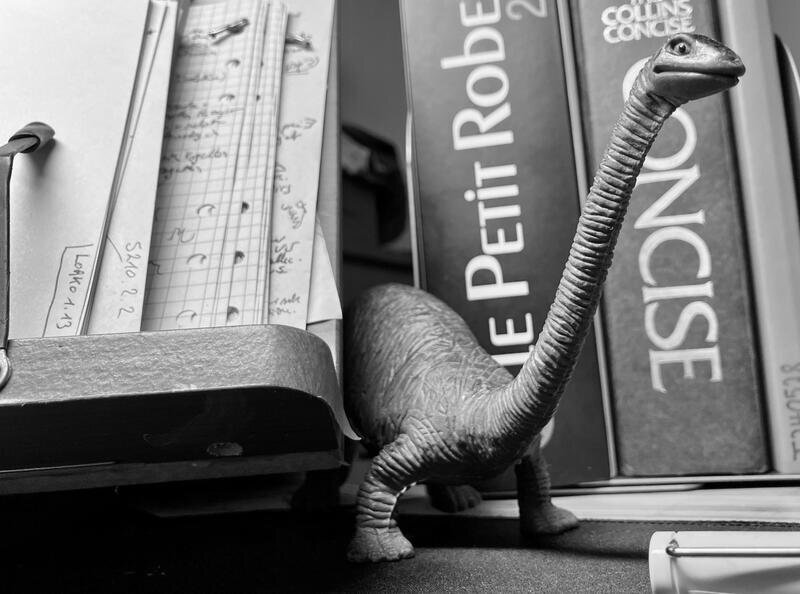It's not our Weekly Thread (I will post it in a couple days, like every week) but I just replied this in another thread and thought it might be worth sharing with you guys. I also invited the OP to join our community. Hopefully, they will. A short summary, to give you some context: the OP was worried that they can't keep on writing in their journal and asked for advice. What follows is my reply to the OP reply to my first comment. The whole thread can be read here.
It's a bit long but I see so many (young or not so young) people being blocked by that perfectionism shit (I also had to fight against it, mind you). Let me know, if you think this has little to do with our community or if you think it's ok and feel free to add your own remarks and suggestions:
One thing I’ve discovered about my mentality is that, I’ve developed a perfectionist perspective/mindset
Perfectionism is the enemy of creativity, which journaling can be considered a form of but that’s true of any form of writing. Perfectionism will often be used as an excuse to not finish/publish a text. I learned at a very young age to say to my own perfectionism to fuck off. Even for simple stuff like commenting here on lemmy I’m OK with publishing posts/comments in English (which means that they contain even more mistakes than they would have in my native French), I’m ok with mistakes and I can always edit the ones I see later on. I’m also ok with not having a fully articulated expression of what I really want to say (for that you would need to read and me to write in French). And that’s true for any other published work, not just here on Lemmy (I may have been writing for a living, younger).
As far as I’m concerned, I consider perfectionism one of my worst enemy. I see it as my own fear of realizing I’m far from being as good I imagine I am ;)
After reading your insight, maybe I’m sensing a change in my perspective. A positive change. Maybe I can LET GO of the feeling of failure and move on…
So glad to know that!
Don’t be afraid (really) to try letting go of that perfectionism. Worst case: it won’t help you. But if it does help you, you will never regret getting rid of that shit feeling.
A warning before you try anything new: you need to be prepared, like be OK in you head, like for real because it’s the most likely outcome, with the idea that you will fail at doing it, that will fail the first time, and maybe the second time and maybe more. And even if you don’t fail, you may be ok with doing something great either. That’s not an issue. That’s how you begin. That’s how anyone begins. Trying to get rid of that shit feeling of perfectionism you will indeed fight years-long education and habits. It’s not just an on/off switch so be ok with that ;)
We now live in an age that hates failing and is in absolute adoration before perfectionism(at least as much as it is in adoration before money). That is the most stupid thing ever conceived; And it is even more so for all the kids that are being taught that. Because, simply put, failing is essential part of leaning. I would even say failing is the only legit way to learn anything that is worth learning.
How did you learn to walk? By walking a marathon or running a sprint like some athlete or was it by falling on your diapered toddler bum one clumsy step after another, over and over again? Yeah, not that brilliant but be assured that was the exactly the same with me. How did you learn to write? By writing poetry that put to shame dear Shakespeare at your very first attempt? Or by making a shit ton of mistakes, and by writing each letter clumsily one at a time, and then, after years of practice, by realizing you were indeed able to write your first (but still rather poorly worded) real sentences? So did I. And I experience that with every single language I learn(ed), even more so with non-Latin languages. And how did you (maybe?) learn to kiss, and more? Don’t tell me you were at the top of your art from your first kiss, and that you were a perfect lover the first time too because I certainly wasn’t (and, decades later, still am not ;)
Failing and then trying to understand how and why, and how to avoid repeating the exact same mistake, is at the core of learning and therefore should be at the core of any quality teaching too. Not telling kids they’re perfect and all they do is amazing. That’s bullshit. Alas, it’s that bullshit that is now the norm. Heck, teachers in schools nowadays are even afraid to give poor grades to students as that could be traumatizing for the kids… forgetting that’s it’s the sole purpose of giving a grade: to assess the level of assimilation of whatever the student was supposed to have studied. Sad state of affair out of which the real losers here are those students that don’t learn essential knowledge and skills anymore. They’re the ones that are being screwed up.
Sorry, for that rant. It’s something that worries me a lot to watch so many younger people being frozen by the fear of failing despite being at the very age where they should happily be taking so many fucking risks and be daring of trying the most stupid shit. I also worry a lot realizing those younger ones are very quickly becoming unable to read and write, or to do simple math. Meaning they aren’t able to learn and understand much by themselves, and less and less able to communicate whatever thought, emotion, or idea they may wish to share.
To get back to your situation: your journal is not a work of art that will end up exposed in art galleries nor in a museum, maybe you will do stuff that will end up exposed and studied, no one can predict the future, but they should not be your journal. That journal is one of the tools in your toolbox with which you will do what you want with your life. It’s also a work in progress. Use it, abuse it, experiment in it, break it as often as you feel like it. In a few decades, when you will look back at your old journals, you will be happy you have tried (and failed) so many times at so many things. And I’m willing to bet you will be happy to have kept a record of all those failed and imperfect attempts of yours ;)











